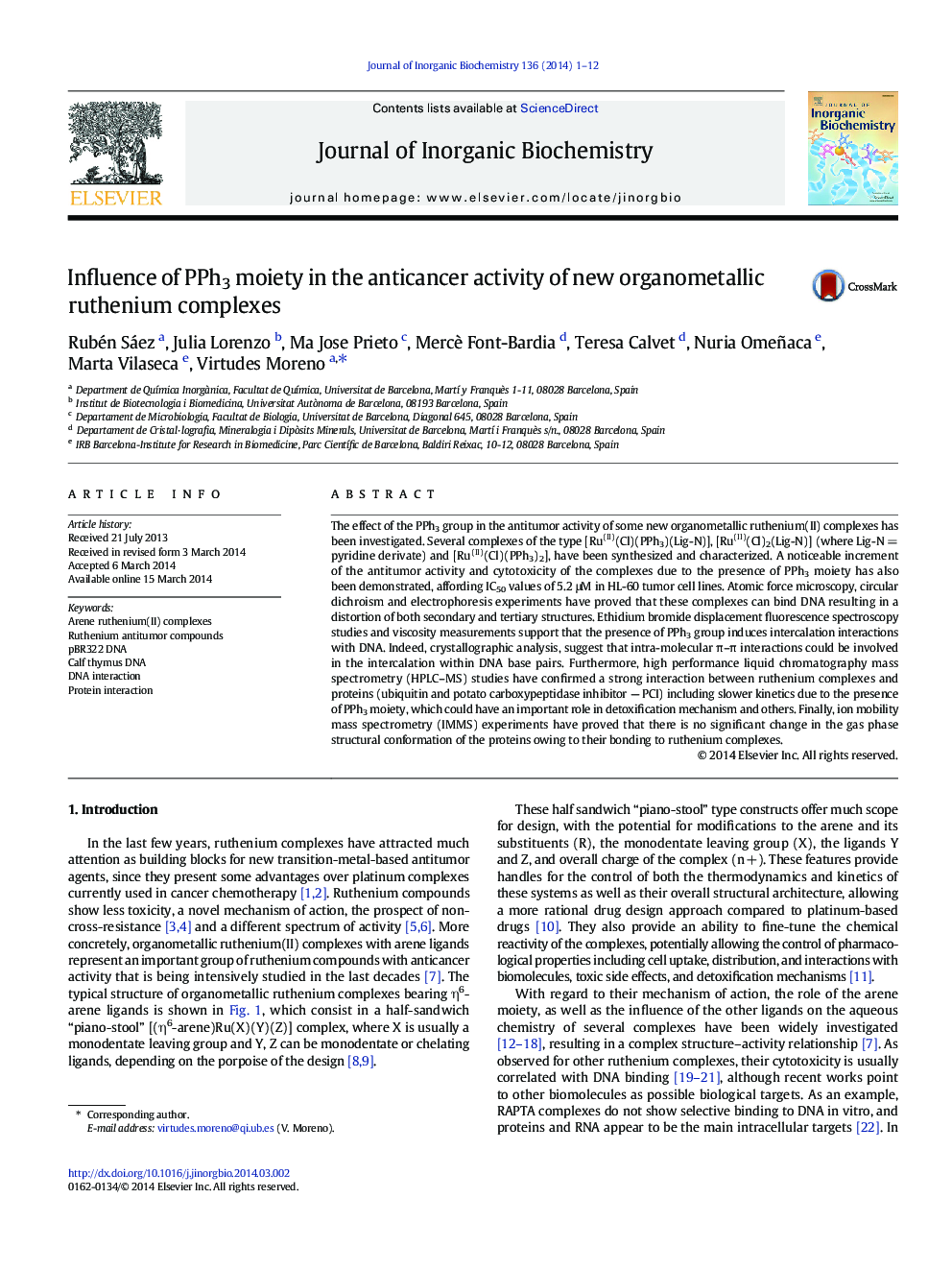| کد مقاله | کد نشریه | سال انتشار | مقاله انگلیسی | نسخه تمام متن |
|---|---|---|---|---|
| 1317369 | 1499451 | 2014 | 12 صفحه PDF | دانلود رایگان |

• New organometallic ruthenium(II) complexes with antitumor activity were synthesized.
• Characterization of proteins and DNA adducts with the complexes were performed.
• They are capable to bind DNA, distorting both DNA secondary and tertiary structure.
• The complexes are able to bind specific proteins without altering their conformation.
• Improved antitumor activity due to the presence of PPh3 moiety was demonstrated.
The effect of the PPh3 group in the antitumor activity of some new organometallic ruthenium(II) complexes has been investigated. Several complexes of the type [Ru(II)(Cl)(PPh3)(Lig-N)], [Ru(II)(Cl)2(Lig-N)] (where Lig-N = pyridine derivate) and [Ru(II)(Cl)(PPh3)2], have been synthesized and characterized. A noticeable increment of the antitumor activity and cytotoxicity of the complexes due to the presence of PPh3 moiety has also been demonstrated, affording IC50 values of 5.2 μM in HL-60 tumor cell lines. Atomic force microscopy, circular dichroism and electrophoresis experiments have proved that these complexes can bind DNA resulting in a distortion of both secondary and tertiary structures. Ethidium bromide displacement fluorescence spectroscopy studies and viscosity measurements support that the presence of PPh3 group induces intercalation interactions with DNA. Indeed, crystallographic analysis, suggest that intra-molecular π–π interactions could be involved in the intercalation within DNA base pairs. Furthermore, high performance liquid chromatography mass spectrometry (HPLC–MS) studies have confirmed a strong interaction between ruthenium complexes and proteins (ubiquitin and potato carboxypeptidase inhibitor — PCI) including slower kinetics due to the presence of PPh3 moiety, which could have an important role in detoxification mechanism and others. Finally, ion mobility mass spectrometry (IMMS) experiments have proved that there is no significant change in the gas phase structural conformation of the proteins owing to their bonding to ruthenium complexes.
New organometallic ruthenium complexes including PPh3 moiety demonstrate increased antitumoral activity compared to the same compounds lacking the PPh3 group. The presence of this moiety could as well regulate the drug vehiculization as well as the detoxification mechanisms, since it affects notably the binding kinetics to model and specific proteins.Figure optionsDownload as PowerPoint slide
Journal: Journal of Inorganic Biochemistry - Volume 136, July 2014, Pages 1–12